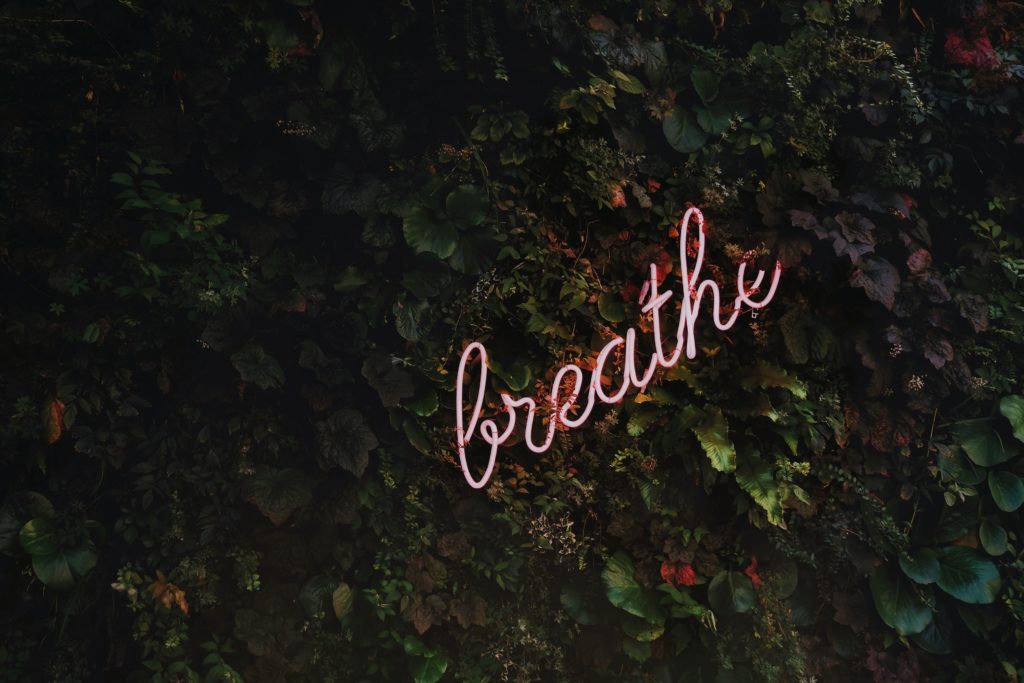Recently, I’ve been thinking a lot about stress. I used to think that stress was an ordinary phenomenon that came with being “busy” and hard working. I thought of stress as a by-product of what it meant to be successful and even correlated that the higher the stress, the more important and worthwhile the task at hand was. Yet, over the years and as a therapist, I’ve learned that short term stress is natural, however, long-term stress can have a deep impact on our bodies, minds, and spirits. You may be thinking, “well if it’s natural, then what’s the problem?” The problem is that stress has been researched to lead to mental health issues such as anxiety, depression, or PTSD (posttraumatic stress disorder). It’s also connected to various physical health issues such as long-term effects on our auto-immune system.

What is Stress?
First, it’s important to understand that stress is a normal, natural, and important part of our biology. You see, a long time ago when humans were a primitive species and living in dangerous environments, stress helped us by alerting us of danger and activating our natural defense response system. We can call this the fight, flight, or freeze modes that all humans come equipped with from birth. These modes basically represent the types of natural responses we give when in imminent danger. When we go into protective mode our body physically responds. Our heart rate increases, our muscles tense up, our breathing is more rapid, and even our short term memory improves! Isn’t the human body amazing!? It’s prepared to help you face the dangers that life unexpectedly throws at you.
During times of stress, the brain releases chemicals known as serotonin and adrenaline within seconds of being alerted of danger. Now, these chemicals are safe when they are short term and in low amounts, but that changes when we are continuously exposed to them. You see the body is meant to return to its normal state after the threat is over. However, when we are exposed to long-term stress, the brain continues to be in fight, flight, or freeze mode and does not stabilize. This continual release of serotonin and adrenaline then begin to cause neurotransmitters and brain structure to shift.
Stress Activation & Long Term Stress
Stress comes from a variety of places. These include, but are not limited to:
- Relationships
- Work
- Illness
- Accidents
- Money
- Life Changes (relocation)
- Family Dynamics
- Loss
These situations are all things we deal with on a daily basis in some way or another. When you consider this, it makes sense that we are continuously triggered and activated on a short term basis. When we deal with ongoing and non-stop stress then it becomes long-term stress, also referred to as chronic stress. Chronic stress has very serious implications on the human body, mind, and spirit. Chronic stress is not the same as short term stress. You see when our response becomes chronic the body has a difficult time making a distinction between what is normal and not normal responses to stress. This means that our stress response system is no longer able to return to normal and instead is on high alert continuously.
Effects on Mental Health
Research shows that chronic stress leads to a variety of mental health conditions. This is because stress can cause extensive worry, fear, panic, sadness, irritability, isolation, nightmares, sleep disturbances, and many other symptoms. The most common mental health issues related to stress are depression, anxiety, posttraumatic stress disorder (PTSD). Both Depression and anxiety are the most diagnosed mental health illnesses in the U.S and affect millions of people each year. People who develop posttraumatic stress disorder after a traumatic event usually develop chronic stress. This is because PTSD is unlike a normal stress response. Instead, it’s an ongoing destabilized stress response that includes symptoms such as flashbacks, nightmares, intrusive thoughts/reminders of the experience, disassociation, difficulty concentrating, derealization, and high levels of alertness.
Currently, there is a lot of attention being placed on the way PTSD alters brain structure. When we experience a traumatic situation that has placed us or someone close to us in danger, our mind tries to make sense of this and continually engages in the natural stress response. However, because the events experienced may often be very powerful, some people go on to develop posttraumatic stress disorder. PTSD is a serious mental health illness that includes a set of symptoms that continue even long after the traumatic experience is over. This happens because the traumatic experience restructures our brain and disrupts our stress response system due to long-term stress. PTSD impacts areas of the brain such as the hippocampus and amygdala.
Effects on Physical Health
The body is also impacted by ongoing chronic stress. Research shows that ongoing stress impacts our immunize system. Under normal circumstances, the immune system is activated during stress to help us get through a difficult situation. When we have chronic stress our immune system is continuously activated and exhausted. As a result due to our immune system suffering, so does our brain function. People with chronic stress also deal with effects on their heart health, metabolic system, and hormone functioning.
Stress impacts the body in the following ways:
- Headaches
- Eye Twitching
- Back Pain
- Weight Gain or Weight Loss
- Blood Pressure Issues
- Hair Loss
- Acne
- Stomach Aches
- Insomnia
- Lower Libido
- Irregular Menstrual Cycle
How Can We Cope with Stress?
There are many ways to help find support with chronic stress. This includes visiting a mental health professional. Therapy can be very helpful, but it’s also a lot of work that requires discussing the source of stress and making changes. For many of us, our natural response to stress is to avoid the problem. Ongoing avoidance, however, can make things more difficult for us and prolong the problem. If you believe that you are being impacted by chronic stress then it may be time to research a local mental health provider. Some helpful tips on ways to deal with stress are:
- Exercise: Yes, working the body can help regulate chemicals in the brain and allow us to put out all the energy created in our bodies from ongoing stress responses. This doesn’t mean you have to be at the gym 24/7, but it does mean that you should engage in more physical activity. Go on walks in peaceful and natural places.
- Cognitive Restructuring: This is a fancy way of basically saying “change the way you think.” When we deal with high levels of stress our thinking often becomes distorted and it impacts the way we view/respond to the world. Seeing a therapist can help with this process, but we can also utilize healthy coping strategies such as deep breathing, meditation, or light stretching to help relieve some of the stress.
- Be Aware of Your Body: As I mentioned above, our bodies physically respond to stress. Pay attention to your body and the way you react to stress. Doing so can help you learn more about when it may be time to use your healthy coping strategies or when it’s time to set limits/boundaries. We all react differently, some of us have increased heart rates, headaches, dizziness, or get short of breath. Learn about your body and your stress response.
- Set Limits: This means to identify ways to cope with your stress on a daily basis. Getting calls 24/7? Then maybe it’s time to set a time frame when you are available and then shutting off your phone. It can also mean less screen time or engaging in activities that increase your stress. This includes people too! Some people often increase our stress and its important to set limits and boundaries. Remember, this is not about shutting people out or being a “bad” person. This is about taking care of yourself and being mentally/physically/spiritually healthy. This is not selfish, it’s necessary.

If you are ready to see a mental health provider, please check out our partners Latinx Therapy and Therapy for Latinx to find the closest providers. You can also check your insurance by calling the number on your insurance card to see if mental health services are provided. If you are a student then go to your school’s clinic and inquire about services. There is no shame in looking for help and ultimately you are engaging in self-love. You are important and deserve to feel at peace.
Resources
https://sunrisehouse.com/ptsd/unlike-normal-stress-response/
https://m.activebeat.com/your-health/10-ways-stress-can-affect-physical-health/
Cover Photo by ahmad gunnaivi on Unsplash
Photo by Tim Goedhart on Unsplash
Photo by Freshh Connection on Unsplash
Luis is a Licensed Marriage & Family Therapist who graduated from Long Beach State University with a Masters degree in Counseling Psychology (2015). He also has a Bachelors's degree in Child and Adolescent Development with an emphasis on Public Policy from San Francisco State University (2011). Luis has over 9 years of experience working with children and families both in education and mental health. Previously, Luis worked for a non-profit agency in San Francisco, CA providing mental health consultation in early head start programs and SFUSD pre-schools. Currently, Luis works at Kaiser in San Francisco providing mental health services.
His therapeutic interests include working with Trauma, the LGBTQ community, Children, Families, Couples, and POC. His personal interests include; Films, Reading, Writing, Art, Travelling, Disney, and Food. He is also a recipient of the California State Stipend award (2015). PsychoSocial is part of Luis' dedication to mental health and an example of his passion to educate others. Luis hopes that through PsychoSocial he will be able to help in the fight to end the stigma around mental illness.
#EndtheStigma
-
Luis Cornejo, LMFThttps://psychosocial.media/author/psychosocial/September 18, 2017
-
Luis Cornejo, LMFThttps://psychosocial.media/author/psychosocial/January 28, 2018




















